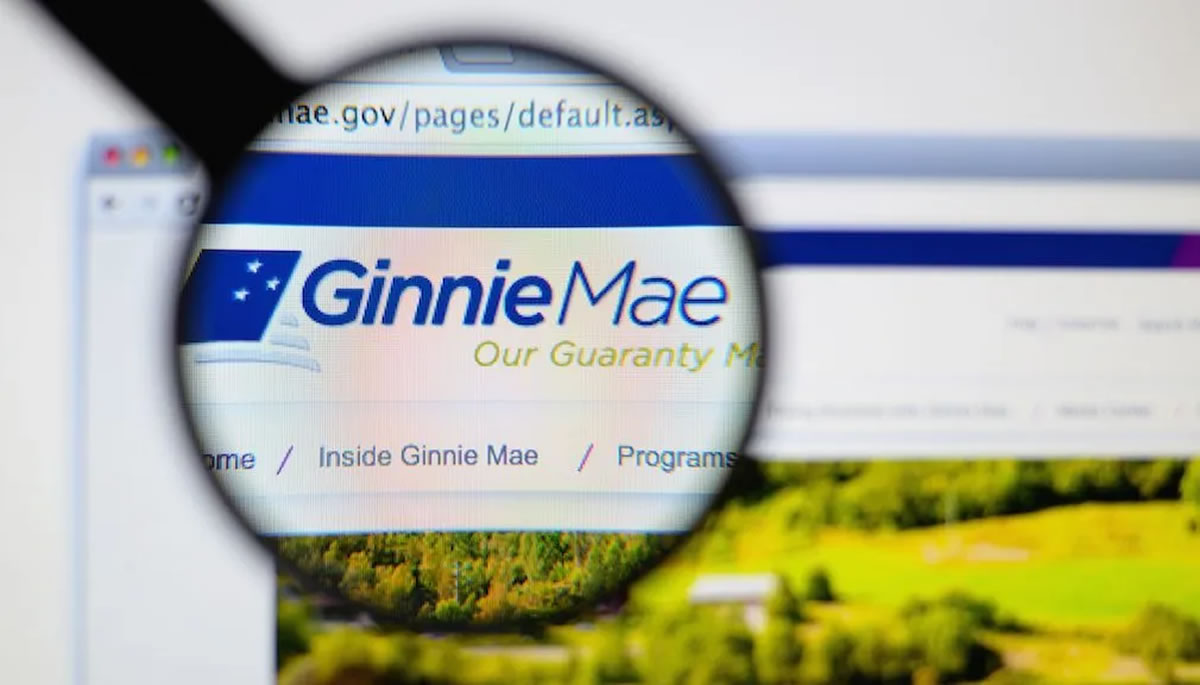

Ginnie Mae released its 2023 annual report this week, touting its additional support for the Federal Housing Administration (FHA)’s Home Equity Conversion Mortgage (HECM) program and its own HECM-backed Securities (HMBS) program as an accomplishment.
The company also detailed its recognition of the unique challenges faced by HMBS issuers and reverse mortgage companies generally. It also outlined its efforts in facilitating a transfer from the London Interbank Offered Rate (LIBOR) index to the Secured Overnight Financing Rate (SOFR) index, and will look to further strengthen both forward and reverse MBS programs in 2024.
In the report’s executive summary, the company touts additional “enhancements” to the HMBS program among its accomplishments. These include certain changes applied this year to the HMBS program, as well as the assumption of the Reverse Mortgage Funding (RMF) servicing portfolio.
“The unpaid principal balance of HMBS did not grow during Fiscal Year 2023, remaining at slightly more than $59 billion, representing support for nearly 287,000 senior households and reflecting a 5% decrease in households from Fiscal Year 2022,” the report explained. “Demand in the structured market for HMBS remained consistent with a slight increase despite the changing macroeconomic conditions.”
HMBS also serves as collateral for Ginnie Mae’s Real Estate Mortgage Investment Conduits (REMIC) backed by HMBS (H-REMICs), with 29 H-REMIC transactions issued in fiscal 2023. This is more than FY 2022’s 24 H-REMIC transactions.
“Although HECM activities increased in the fourth quarter of Fiscal Year 2023, with August’s application and endorsement counts both above 12-month rolling averages, in Fiscal Year 2023 HMBS issue volumes declined in reaction to accelerating interest rates,” the report said, largely in alignment with observations made by FHA in its own annual report released last month.
The company also addressed some of the more unique challenges faced by the HMBS program and the wider reverse mortgage industry.
“While traditional mortgage lenders and issuers felt liquidity constraints in Fiscal Year 2023, the HMBS sector faced a uniquely acute set of challenges from this interest rate environment,” the report said. “This stress was evidenced in the first quarter of Fiscal Year 2023, when a large HMBS issuer, [RMF] filed for bankruptcy.”
Ginnie Mae extinguished RMF from the HMBS program after that point, seizing and assuming control of the company’s servicing portfolio consisting of just under one-third of the full HMBS market at a value of around $20 billion.
“Upon seizure of the defaulted portfolio, Ginnie Mae assumed all obligations to the HMBS investors and all servicing responsibilities, stepping into the role of issuer,” the report found. “At the Fiscal Year-end, Ginnie Mae’s Balance Sheet increased by over 50% primarily as a result of the RMF default.”
Liquidity pressures in this space pushed Ginnie Mae to adopt new HMBS-specific policies for its program. The company reduced pool sizes to provide relief to smaller HMBS issuers to securitize multiple tail participations, which will go into effect during Q1 of FY 2024.
Ginnie Mae explained that while the discount rate for reverse mortgages increased, this was undercut by the heightened interest rate environment in its managerial assessment.
“For variable rate loans, which represent the majority of reverse mortgage loans and the related HMBS obligations, the borrower’s interest rate resets to current market interest rates,” the company said in the report. “Accordingly, net cash flows typically increase when borrower’s interest rates are higher. However, this increase can be outweighed by the impact that changes the interest rates have on the discount rates used in this valuation.”
The current interest rate environment thusly had “more of an impact than the increase in the discount rate on reverse mortgage loans,” according to the report.
RMF marked the first time that Ginnie Mae had extinguished an issuer from the HMBS program. As a result, the assumption of the portfolio and the act of stepping in as an issuer made for “the first time that Ginnie Mae was required to onboard a substantial portfolio of HECM loans and corresponding HMBS obligations.”
Ginnie Mae previously detailed the strain that the assumption of the RMF portfolio placed on its resources, and the company is still seeking to secure more resources to better accommodate it. However, they also see the assumption and its minimal impact on borrowers as a win.
“This effort is a testament to Ginnie Mae’s ability to step into the role of the issuer when necessary, stand behind its guaranty of timely payments to investors, and provide stability to the mortgage industry,” the report said.
Ginnie Mae also included a tabulation of the top 10 HMBS issuers.
| Issuer name | Category | Unpaid Principal Balance (UPB) |
| Finance of America Reverse (FAR) | Non-depository | $ 16,522,369,317 |
| Longbridge Financial | Non-depository | $ 7,995,668,977 |
| PHH Mortgage Corp/Liberty | Non-depository | $ 7,445,989,990 |
| Mortgage Assets Management | Non-depository | $ 4,373,240,176 |
| Mutual of Omaha | Non-depository | $ 1,351,911,411 |
| TMAC/Goodlife Home Loans | Non-depository | $ 1,282,861,192 |
| Plaza Home Mortgage | Non-depository | $ 490,229,553 |
| Sun West Mortgage Company | Non-depository | $ 327,502,169 |
| Cherry Creek Mortgage | Non-depository | $ 187,221,000 |
| The Money Source, Inc. | Non-depository | $ 156,250,393 |